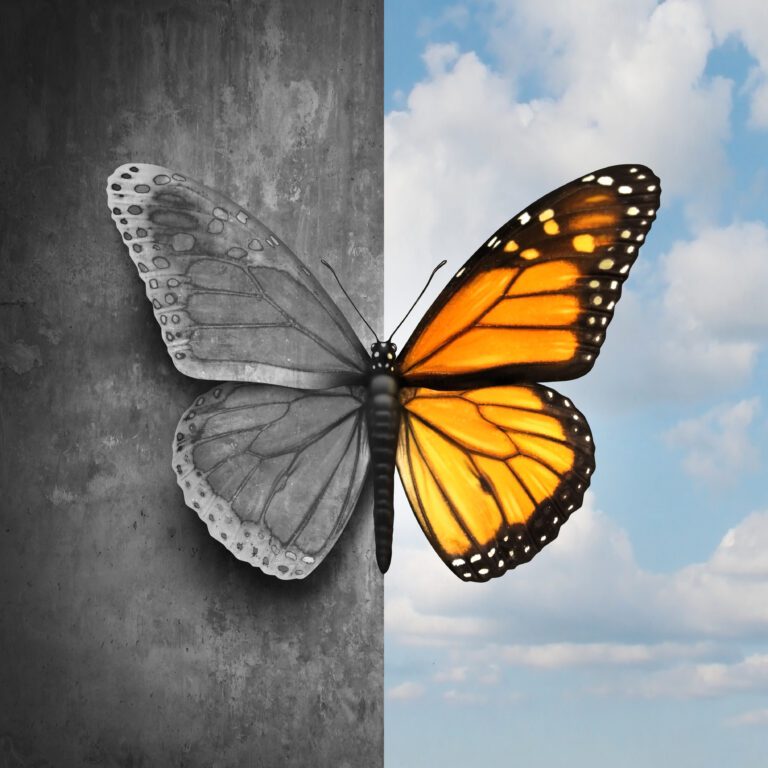World Bipolar Day
Van Gogh is a painter whose birthday is March 30. He is well known for having manic depression, now known as bipolar disorder, and painting such famous masterpieces as “Starry Night.”
World Bipolar Day
To commemorate Van Gogh’s birthday, The International Bipolar Foundation (IBPF) has adopted his day as “World Bipolar Day.”
The mission of the IBPF is similar to The Bipolar Battle, Inc.’s. The IBPF “empowers individuals living with bipolar disorder and their caregivers by providing advocacy, education, support, and awareness, fostering a caring community and stigma-free world where mental health is equitably acknowledged and treated.”
I am all about celebrating this wonderful day by helping to bring awareness to bipolar disorder and to empower those living with it.
To help you understand bipolar disorder, I’d love to go over some of the basic concepts related to it.
The Reality
Before we dive into any main concepts, I’d like to dispel some myths. By understanding the reality of bipolar disorder, you’ll become more aware of the disorder and help combat the stigma associated with it.
I can’t tell you the number of times I’ve heard the phrase, “But John, everybody has a little bipolar in them.” After discussing this statement, I always find that the person is referring to emotions.
It is an absolute reality that everyone experiences emotions, and these can fluctuate during the normal course of the day. For example, you may wake up refreshed and energized, ready to conquer the day. However, you may get into an argument at work, which leaves you frustrated and irritated. These are emotions we all experience.
A Mood Disorder
Bipolar disorder is a different beast. It is a mood disorder characterized by extremes. There are extreme lows (bipolar depression) and extreme highs (mania in bipolar type 1 and hypomania in bipolar type 2) both where the individual cannot function.
Not only this, but these extreme moods are episodic. They can last weeks, months, and sometimes even years. All kinds of emotions accompany these different mood states, as well, but a mood episode is completely different to the emotions a person experiences during the normal course of the day.
Bipolar disorder is a serious mental illness that impacts every aspect of a person’s life. It takes patience, dedication, and a fighting spirit to manage it each day.
You can’t just take a pill and forget about it. It is important to adopt healthy coping strategies and live a healthy lifestyle. For example, healthy activities include exercising, getting daily activity, eating healthy foods, drinking plenty of water, getting at least 7-8 hours of sleep each night, going to bed at the same time each night, waking up at the same time each morning, and getting outside.
See how it is not just about taking a pill?
‘It’s All In Your Head’
Many people believe that with a mental illness, you simply need to reframe your thoughts, exercise, or follow a healthy diet. If it were that simple, you wouldn’t see world-class athletes struggling with bipolar disorder, depression, and other mental illnesses. They follow a very regimented schedule with their training and eating habits.
Bipolar disorder is in the brain, but it is not something you can simply get rid of by changing your thoughts or by thinking positively. It is extremely serious and needs to be addressed that way.
On the homepage of The Bipolar Battle, you will see the statistic that 82.9% of adults with bipolar disorder have a serious impairment. That means that many of us with bipolar disorder have a greatly reduced capacity to function, if we can at all.
Western Philosophy Of Medicine
I follow the Western philosophy in the treatment of bipolar disorder. There are two components to treatment – one is medication management, and the other is therapy.
Medication management is about finding the medication, or cocktail of meds, that helps to stabilize bipolar disorder. Some people are fortunate, and they find the right treatment with the first medication they try. Others, like myself, take longer – in my case, much longer.
It took me 10 years of trial and error to find the right combination of medications. Even to this day, my doctor has to tweak medications and dosages during the year. I have a very serious and extreme case of bipolar disorder. If I did not have medication, I would be in a psychiatric facility. That is serious.
Therapy is the second component of treatment. It is important to find a therapist you mesh well with and can see regularly. When things are rough for me, I will see my therapist every week. When things are more stable, I see my therapist every other week or sometimes even every three weeks. It’s important to have a therapist on your support team because they will help you navigate living with bipolar disorder.
A New Perspective
It may seem that I am painting a “doom-and-gloom” situation. and I do not want that to be the takeaway. Many people underestimate the seriousness of bipolar disorder, which is why I have made it a point to show you that it is, in fact, very serious.
The good news is that bipolar disorder can be successfully treated. Finding the right treatment is realistic and doable – it just takes work and persistence. Each person is different in how the symptomology of bipolar disorder presents for them, which is why there is no “cookie-cutter” approach to treatment.
It is a matter of finding the right medication, therapist, tools, and strategies to help manage each day. Treating bipolar disorder and managing it daily requires a multifaceted approach. You will need to utilize several tools.
Last Thoughts
For World Bipolar Day, help me to spread awareness about bipolar disorder and to help break down the wall of stigma. I love that The International Bipolar Disorder Foundation created this special day to help commemorate those of us living with bipolar disorder. If you have bipolar disorder or are a caregiver of someone living with bipolar disorder, may this day and this article both bring you hope. If you did not know much about bipolar disorder, I hope this article was informative for you and that you can now help us raise awareness about this very important and serious mental illness.







